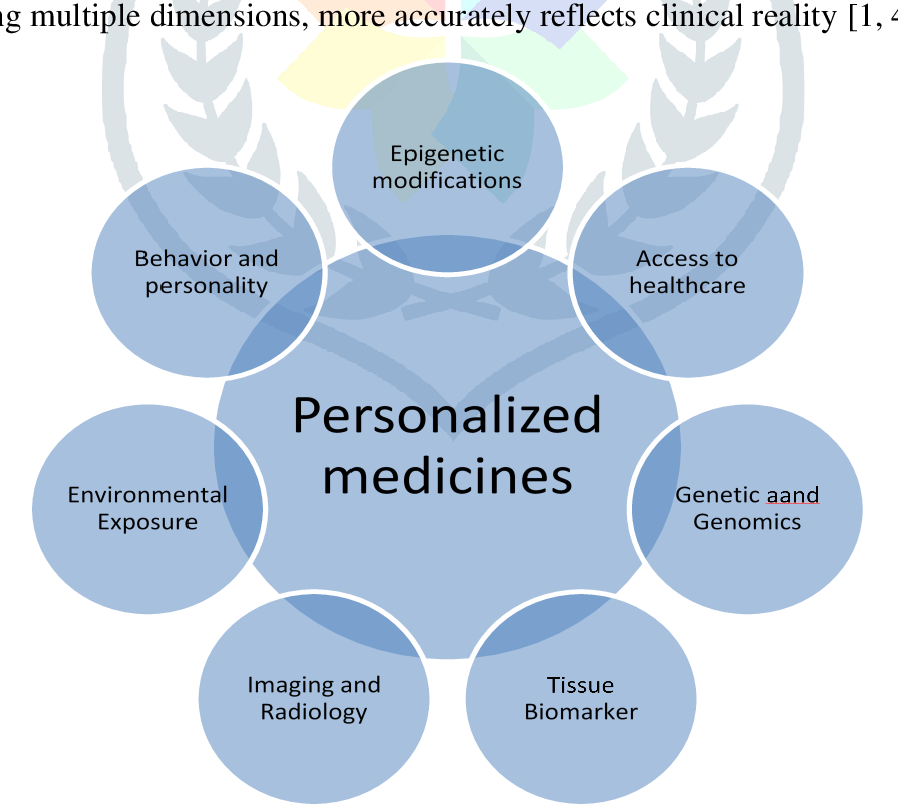In today’s rapidly advancing medical world, the role of genomics in personalized medicine is becoming increasingly important. But first, let’s break down what genomics really mean. Genomics is the study of your entire genetic makeup, the DNA that makes you unique. By examining your genes, scientists can gain insights into your health, including how you might react to certain medications or your risk of developing specific diseases.
Now, how does this apply to personalized medicine? Personalized medicine is a medical approach that tailors treatment to individual patients based on their unique genetic information. This isn’t a one-size-fits-all kind of healthcare; it’s about creating a treatment plan that’s as unique as you are. Here’s why that matters.
Tailored Treatment Plans
Imagine if doctors could look at your genetic makeup and predict which medicines would work best for you. That’s exactly what genomics in personalized medicine aims to do. By understanding the genetic variations that influence how your body processes medications, doctors can prescribe drugs that are more effective and cause fewer side effects. This means your treatment is not only tailored to your condition but also to your body’s specific responses.
Early Disease Detection
Genomics can also help in detecting diseases long before symptoms appear. For diseases like cancer or heart conditions, early detection can make a significant difference in treatment outcomes. Genomic testing can reveal risk factors hidden in your DNA, allowing you and your healthcare provider to take preventative steps early on. This could mean starting treatments sooner or making lifestyle changes that could deter the disease from developing.
Understanding Genetic Predispositions
Everyone inherits genes from their parents, and sometimes, these genes can carry risks for certain diseases. With genomic information, doctors can identify these inherited risks and provide guidance on how to manage them. This is not just about treating illnesses, it’s also about preventing them.
For instance, if you know you’re at high risk for diabetes based on your genetic profile, your doctor might recommend specific dietary adjustments or exercise routines tailored to help you avoid developing the condition.
Improved Health Outcomes and Efficiency
One of the most significant benefits of personalized medicine powered by genomics is the improvement in health outcomes. By targeting therapy to individuals’ genetic profiles, treatments become more efficient, potentially reducing the time and cost associated with trial-and-error approaches to diagnosing and treating illnesses.
For example, in cancer treatment, genomic tests can help doctors decide which combination of chemotherapy will work best for battling a patient’s specific type of tumor, which not only improves survival rates but also minimizes the patient’s exposure to potentially harsh side effects.
Ethical and Privacy Considerations
While the benefits are substantial, the integration of genomics into personalized medicine also brings up important ethical and privacy concerns. With access to the genetic data of individuals, there’s an ongoing debate about who else can access this information and how it should be used. Privacy protections are essential to ensure that genetic information is not misused for discriminatory purposes, such as in employment and insurance.
Moreover, there is the ethical issue of how much information patients should receive about their genetic risks for various conditions. These concerns require careful regulation and clear communication between healthcare providers and patients.
The Future of Personalized Medicine
Looking ahead, the role of genomics in personalized medicine is set to expand even further. Advances in technology are making genomic sequencing faster and more affordable, which means it could soon become a routine part of medical care. This would not only enhance the precision of treatments but also lead to more widespread use in managing and preventing diseases.
Moreover, ongoing research in genomics promises to uncover even more about how our genes affect our health, potentially leading to breakthroughs in how we treat not just major diseases but also rarer conditions that have been difficult to manage so far. As research continues to evolve, we might see a day when personalized medicine becomes the norm rather than the exception.
Conclusion
The integration of genomics into personalized medicine is a significant advancement in the medical field, offering tailored treatments, early disease detection, and a better understanding of genetic predispositions. As we navigate the complexities of incorporating this technology into everyday healthcare, it’s crucial to balance the immense benefits with the ethical and privacy considerations it entails.
With proper handling, genomics can not only transform individual healthcare but also propel the entire medical field toward more precise, effective, and preventative care. This approach not only promises to enhance the quality of life but also revolutionizes the way we think about and manage health in the 21st century.
